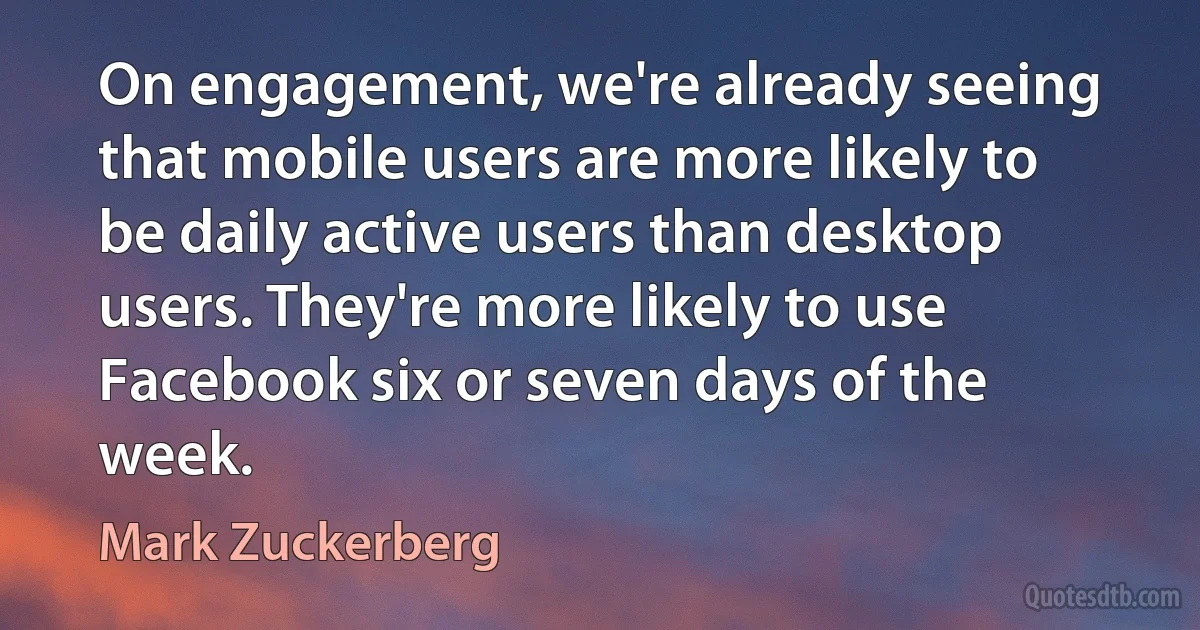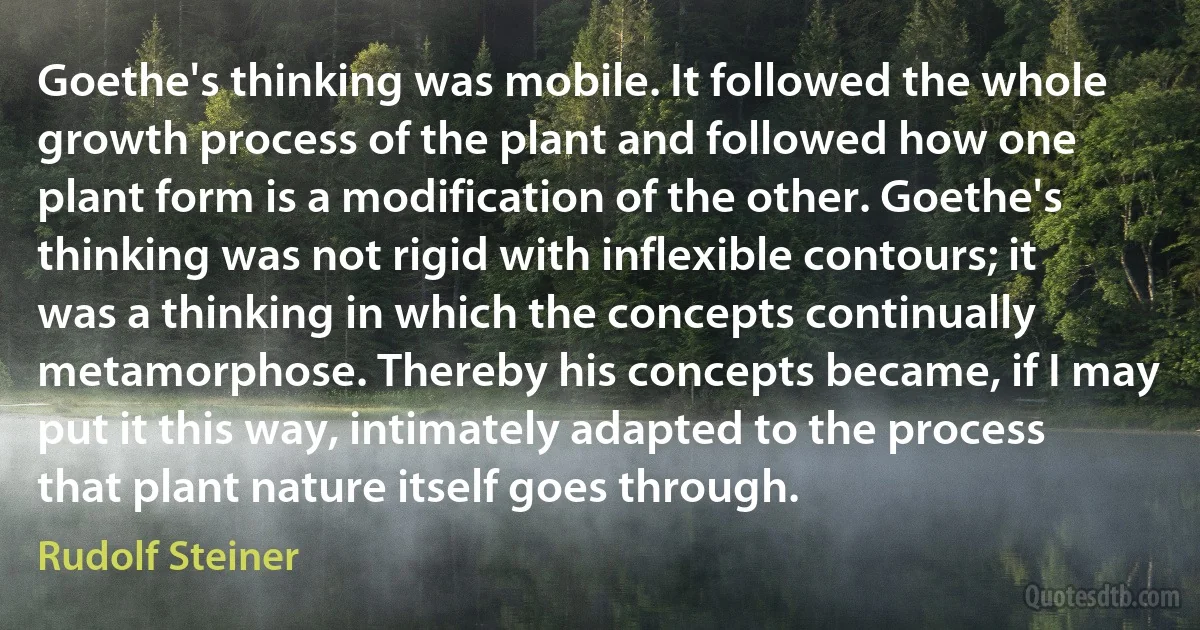Mobile Quotes - page 4
The NSA and GCHQ ... are obsessed with searching out any small little crevice on the planet where some forms of communication may be taking place without them being able to invade it. ... They are obsessed with finding ways to invade the systems of online, onboard internet services and mobile phone services, because the very idea that human beings can communicate even for a few moments without them being able to collect and store and analyze and monitor what it is that we're saying is simply intolerable.

Glenn Greenwald
Bullying behaviour can be communicated via text, mobile phones, internet, social networking sites, forums. But we can't limit it because these messages are then reinforced by television which glamorises yelling, swearing and vulgar behaviour as the way to walk the red carpet of acceptance.

Louise Burfitt-Dons
The Allied airborne operation in Sicily was decisive despite widely scattered drops which must be expected in a night landing. It is my opinion that if it had not been for the Allied airborne forces (82nd) blocking the Hermann Goering Armd. Div. from reaching the beachhead, that division would have driven the initial seaborne forces back into the sea. I attribute the entire success of the Allied Sicilian Operation to the delaying of German reserves (by the 82nd ABN Div.) until sufficient forces had been landed by sea to resist the counterattacks by our defending forces, the strength of which had been held in mobile reserve.

Kurt Student
Ricardo's "science" was founded on the principle that capital is more or less immobile and labor highly mobile. We are enjoined today to worship the consequences of Ricardo's science, despite the fact that the assumptions on which they are based have been reversed: capital is highly mobile, and labor virtually immobile -- libertarian conservatives lead the way in rejecting Adam Smith's principle that "free circulation of labor" is a cornerstone of free trade, in keeping with their contempt for markets.

Noam Chomsky
Such cultural homosexuality is an alienation more or less forced upon certain groups of Auden's society by the form of their education and the nature of their social and financial conditions. Where the members of a class and a sex are taught, in a prolonged narcissistic isolation, to hero-worship themselves-class and sex; where-to a different class-unemployment is normal, where one's pay is inadequate or impossible for more than one; where children are expensive liabilities instead of assets; where women are business competitors; where most social relationships have become as abstract, individualistic, and mobile as the relations of the labor market, homosexuality is a welcome asset to the state, one of the cheapest and least dangerous forms of revolution.

Randall Jarrell
Wednesday (as Pocahontas): You have taken the land which is rightfully ours. Years from now, my people will be forced to live in mobile homes on reservations; your people will wear cardigans and drink highballs. We will sell our bracelets by the roadside; you will play golf and enjoy hot hors d'oeuvres. My people will have pain and degradation; your people will have stick-shifts. The gods of my tribe have spoken. They have said, "Do not trust the Pilgrims, especially Sarah Miller."
Becky (as Sarah Miller): Gary, she's changing the words!
Wednesday (as Pocahontas): And for all these reasons, I have decided to scalp you and burn your village to the ground.

Paul Rudnick
We see the infinite plain of facts, and we impose a moral interpretation upon it. And the moral interpretation is about 'what to do about what is'. That's associated both with security, because we just don't need that much complexity, and aim. So we're mobile creatures, right? We need to know where we're going, because all we're ever concerned about, roughly speaking, is where we're going. That's what we need to know. Where are we going, what are we doing, and why? And that's not the same questions as, 'What is the world made up of?' And so that's the domain of the moral, as far as I'm concerned, which is 'What are you aiming at?' That's the question of the ultimate ideal, in some sense. Even if you have trivial, little, fragmentary ideals, there's something trying to emerge out of that. It's more coherent, and more integrated, and more applicable, and more practical.

Jordan Peterson
The old form of trade union, which was born in the nineteenth century and aimed primarily at negotiating wages for a specific trase is no longer sufficient. First of all, as we have been argueing, the old trade unions are not able to represent the unemployed, the poor, or even the mobile and flexible post-Fordist workers with short term contracts, all of whom participate actively in social production and increase social wealth. Second, the old unions are divided according to the various products and tasks defined in the heyday of industrial production - a miners' union, a pipefitters' union, a machinists' union and so forth. Today, insofar as the conditions and the relations of labor are becoming common, these traditional divisions (or even newly defined divisions) no longer make sense and serve only as an obstacle. Finally the old unions have become purely economic, not political, organization.

Antonio Negri



